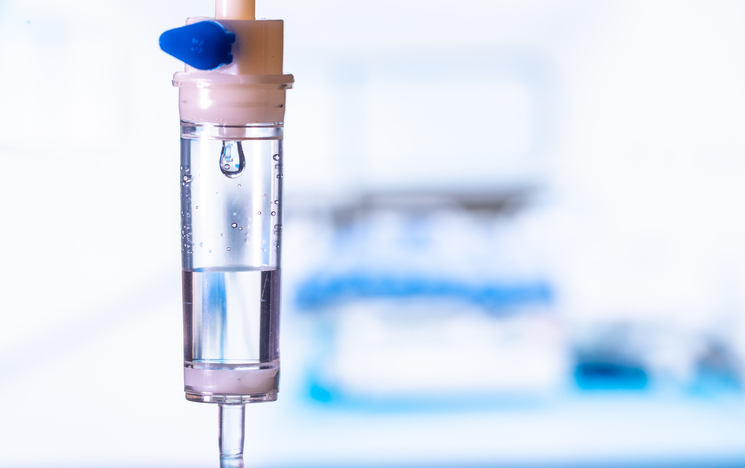
Adolescents who are hospitalized for major depressive disorder (MDD) and suicidal thinking may see rapid improvements in symptoms within days of receiving esketamine infusions, suggests a report published Monday in the Journal of the American Academy of Child and Adolescent Psychiatry.
The small trial found that those who received three esketamine infusions over five days in addition to antidepressants or combination therapy experienced greater symptom improvements than those who received midazolam infusions (the control group) over five days. At the one-month follow-up, teens who received esketamine continued to show a greater response than those who received midazolam, the study found.
“Adolescents with MDD have a high risk of suicide, and recent studies have suggested that elevated rates of depression and suicide in adolescents have been identified during the COVID-19 pandemic,” wrote Yanling Zhou, Ph.D., of the Affiliated Brain Hospital of Guangzhou Medical University in China and colleagues. “Esketamine’s rapid-onset reduction of suicidal ideation might dramatically increase adolescent safety in emergencies.”
The trial included 54 hospitalized adolescents (48 were female) aged 13 to 18 who had moderate-to-severe depressive symptoms and had been experiencing suicidal ideation for more than three months. Moderate-to-severe depression was defined as a score of 17 or greater on the Hamilton Depression Rating Scale. Participants were considered to have suicidal ideation if they had a score of 1 or greater on the Columbia Suicide Severity Rating Scale (C-SSRS) ideation scale and a score of 2 or greater on the self-reported Beck Scale for Suicide Ideation. The participants were randomly assigned to receive three infusions of esketamine (0.25 mg/kg) or midazolam (0.045 mg/kg) over five days along with routine inpatient care and treatment.
The primary outcomes were scores on the Montgomery-Asberg Depression Rating Scale (MADRS) and the C-SSRS ideation and intensity scales. Participants were assessed at 24 hours after each infusion and at one, two, and four weeks after the final infusion.
Participants receiving esketamine had a significantly greater improvement from baseline to day 6 on the ideation and intensity scales of the C-SSRS than those receiving midazolam (-2.6 versus -1.7 for ideation and -10.6 versus -5.0 for intensity). They also showed greater improvement on the MADRS from baseline to day 6 (-15.3 versus -8.8).
Four weeks after the third infusion, 65% of participants who received esketamine experienced remission from suicidal ideation compared with 44% of participants who received midazolam.
“Larger studies are required to support esketamine’s clinical efficacy and assess its long-term [effects], such as cognitive impairment and risk of recreational use following acute treatment in adolescents,” Zhou and colleagues concluded.
For more information, see the Psychiatric News article “Esketamine, Antidepressant Combo Safe, More Effective Than Placebo.”
(Image: iStock/georgeoprea9)
Nominations Now Open for APA Components and Board of Trustees
APA’s success hinges on the expertise, knowledge, and input of its members. Learn more about APA leadership opportunities and nominate yourself or a colleague by Tuesday, August 15, for component service and Friday, September 1, for the Board of Trustees.

